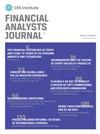俄罗斯外汇监管和外汇管制的演变及外汇立法继续自由化的前景
IF 3.4
3区 经济学
Q1 BUSINESS, FINANCE
引用次数: 0
摘要
在2004-2007年的概念改革和随后的放松之后,经过三十年的不断演变,俄罗斯的外汇管制制度已经达到了这样一个地步:许多行政障碍已经被消除,居民将商品出口收益(原材料外汇收益除外)汇回国内的义务正在被取消,官僚程序也得到了简化。在这一点上,提出的问题是,在外汇管制自由化领域可以首先采取哪些其他步骤,以实现发展非资源出口这一日益紧迫的目标。本文分析了监管的目的,描述了该制度的演变,考察了专家们对改革过程的看法,并对该制度改革的合理前景进行了展望。核心问题是继续和扩大俄罗斯与外国税务当局之间的财务信息自动交换,这尤其有助于在消除剩余居民的遣返义务时限制财政风险。本文章由计算机程序翻译,如有差异,请以英文原文为准。
The Evolution of Foreign Exchange Regulation and FX Control in Russia and the Prospects for Continued Liberalization of FX Legislation
After thirty years of continuous evolution, following the conceptual reform in 2004–2007 and subsequent easing, the Russian system of FX controls has come to a point where many administrative barriers have already been removed, the residents’ duties to repatriate proceeds from export of goods, except for FX proceeds from raw materials, are being cancelled, and bureaucratic procedures have been streamlined. At this point, the question is raised of what other steps in the field of liberalization of FX controls can be taken in the first place to achieve the ever more urgent goal of developing nonresource exports. The article analyzes the purposes of regulation, describes the evolution of the system, examines experts’ opinions regarding the course of reforms, and concludes with a view of the rational prospects for reforming the system. The central problem is the continuation and expansion of the automatic exchange of financial information between the tax authorities of Russia and foreign countries, which, in particular, would help limit fiscal risks when eliminating the remaining residents’ repatriation duties.
求助全文
通过发布文献求助,成功后即可免费获取论文全文。
去求助
来源期刊

Financial Analysts Journal
BUSINESS, FINANCE-
CiteScore
5.40
自引率
7.10%
发文量
31
期刊介绍:
The Financial Analysts Journal aims to be the leading practitioner journal in the investment management community by advancing the knowledge and understanding of the practice of investment management through the publication of rigorous, peer-reviewed, practitioner-relevant research from leading academics and practitioners.
 求助内容:
求助内容: 应助结果提醒方式:
应助结果提醒方式:


